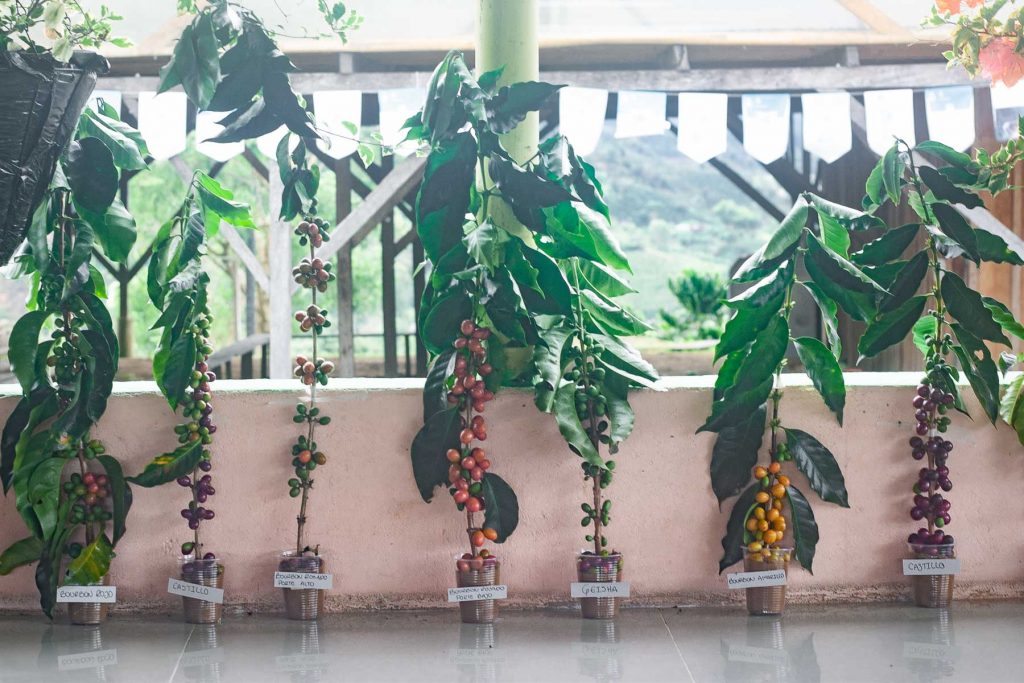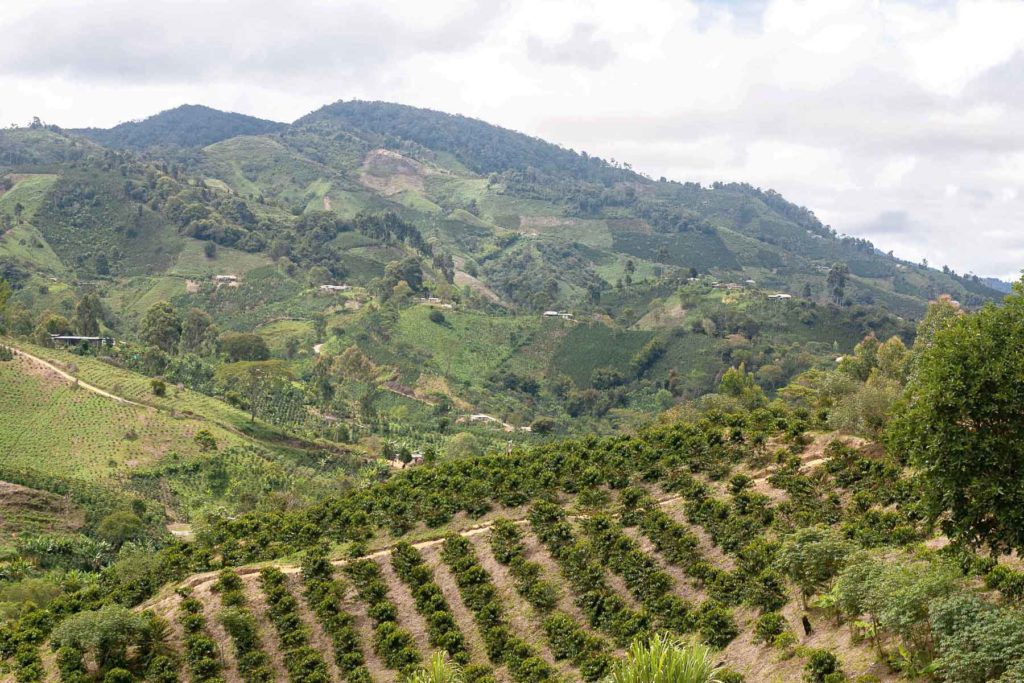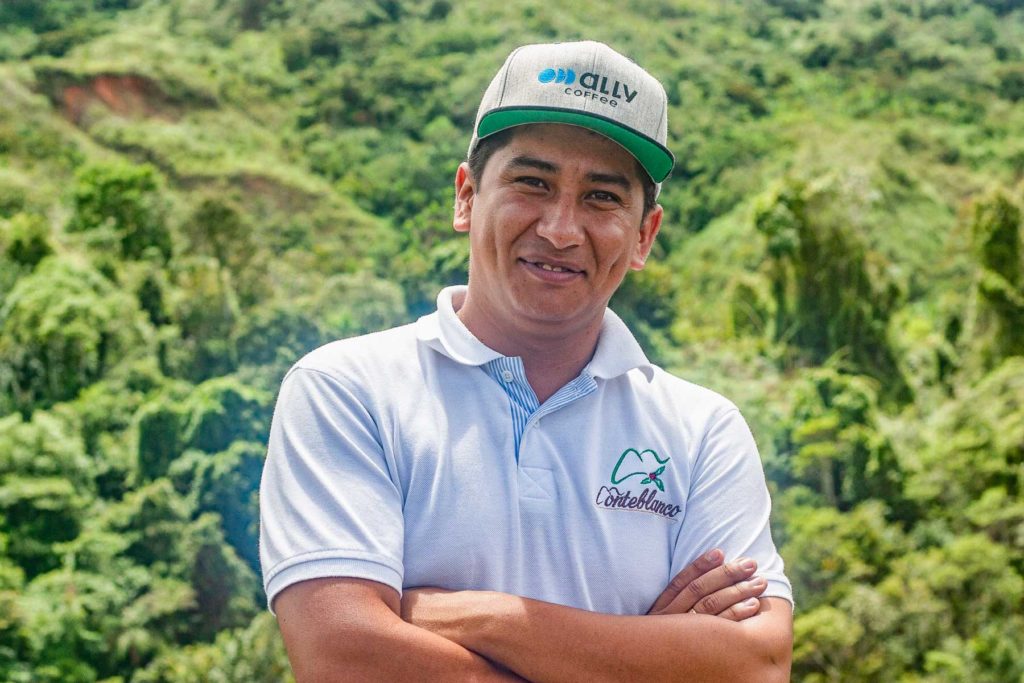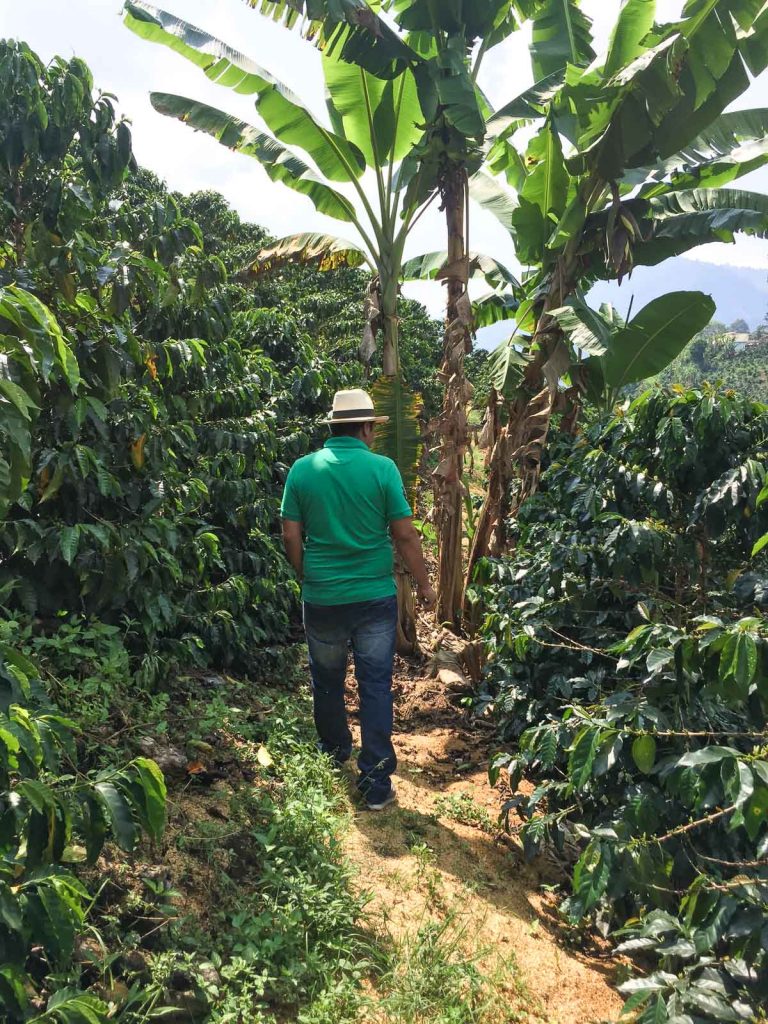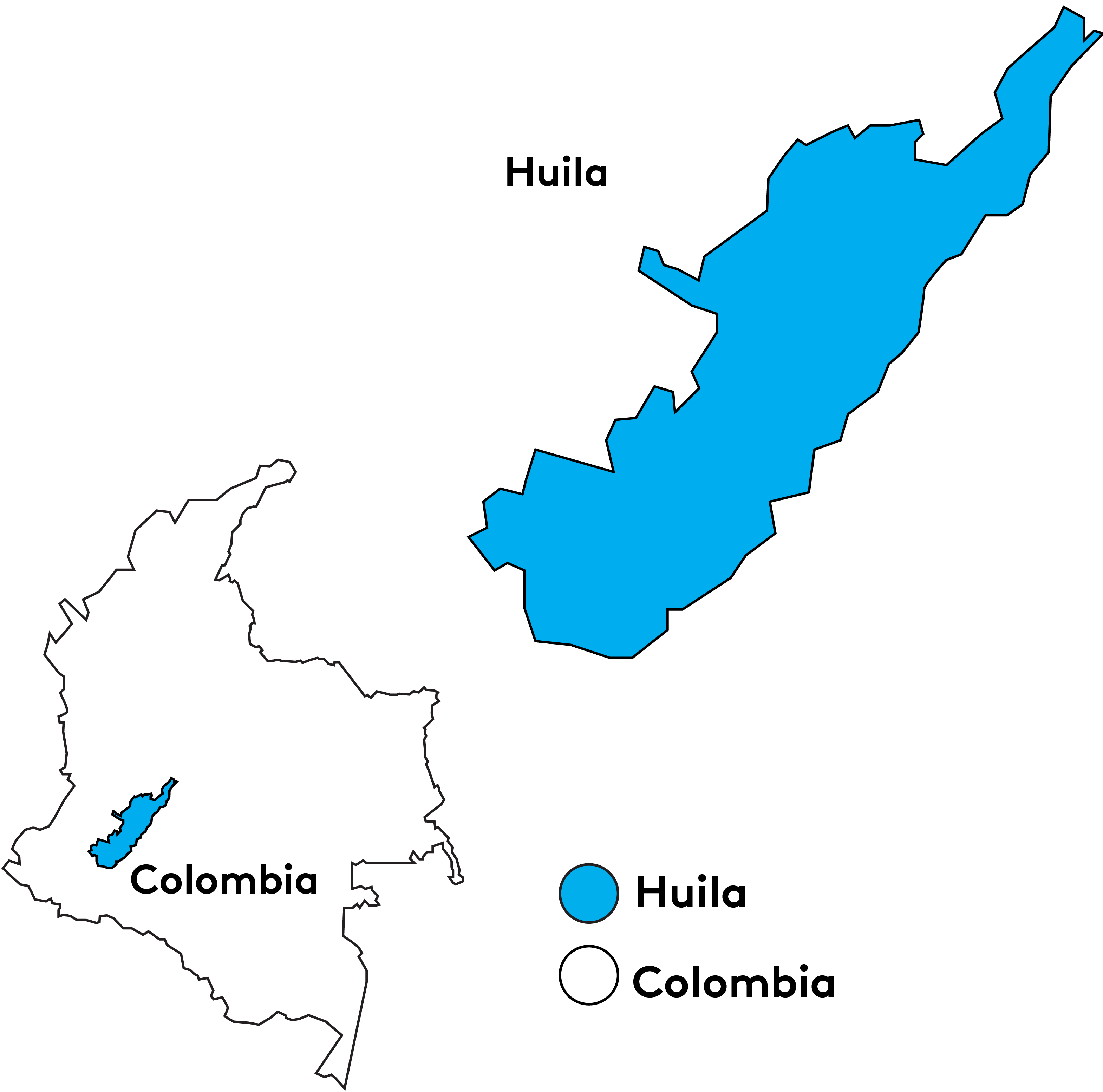Finca Monteblanco, high along the winding mountain roads of Vereda La Tocora in the San Adolfo municipality above Pitalito, is a family farm managed by Rodrigo Sanchez Valencia in the tradition of coffee cultivation that began with his grandfather. Monteblanco’s 18 hectares sit on the crest of a hill, with the wet and dry mill at the top and slopes of coffee planted below.
In 2002, Rodrigo participated in a local program teaching children of coffee producers to cup. Before that, he and his family had never considered coffee in terms of cup profile. By learning to differentiate profiles, he and his father and grandfather were able to able to make the connections between the farming techniques they applied and coffee’s attributes in the cup.
At this time, Rodrigo also began to learn about cupping competitions that evaluate the best lots from farms in a region. He noticed that farms would win one year and then never again, so he decided to investigate how to produce quality coffee consistently. This led him to explore the trees planted on Monteblanco, were he discovered various varieties his grandfather had planted in the 1980’s.
Rodrigo and his team introduced Gesha to Finca Monteblanco in 2016. The seeds were a gift from a client, originally from a farm in Panama. Planting new varieties is part of a development project together with other producers in the region to improve the genetic diversity and resilience of the coffee fields. Gesha is naturally roya leaf rust resistant and its trees have a tall, elegant form, with lots of space between the branches. This makes for slightly lower yields but easier harvest selection of the ripest cherries.
Cold Fermentation
In 2015, Rodrigo and his team piloted a new processing technique called Cold Fermentation, which consists in depulping freshly harvested ripe cherries and transferring them to a cold room to prolong fermentation. Rodrigo found that the extended fermentation period resulted in more complex flavors. This method presented initial challenges until they determined the ideal temperature. After two years of study, they found the best balance between initial degrees Brix of harvested cherries and fermentation temperature, achieving the desired baseline consistency and complexity of flavor in the cup.
Coffees designated for Cold Fermentation typically have 28 degrees Brix at the time of harvest. Floaters are removed to eliminate cherries with ripeness problems and then depulped and immediately placed in GrainPro bags and transferred to the cold room, where the temperature is regulated between 10-13 degrees Celsius for 76 hours. After this prolonged fermentation, coffee is fully washed and transferred to the drying stage, where it spends three days in the sun of the solar dryer and is then placed on raised beds in the shade to continue drying for 23-25 days. After drying, it is stored in GrainPro bags for 20 days of rest prior to preshipment cupping and export.
Rodrigo is proud that he, his wife Claudia Samboni, farm manager Don Gerardo, and the team that works in the fields and at the mill have achieved their goal of producing consistent quality. Each harvest, Finca Monteblanco produces microlots that serve as competition coffees around the world, but the farm also consistently produces containers of delicious coffees that appear year-round on café menus and retail shelves. By applying an ethic of rigorous monitoring, planning, and management at each stage of production and processing, all coffees from Monteblanco showcase their full potential.
Harvesting and processing on Monteblanco have had to evolve with the times, adapting to a changing climate that yields harvest dispersed through ten months of the year rather than in a concentrated peak. Coffees from Monteblanco are milled and prepared for export at the new, state of the art Aromas del Sur drymill in Pitalito.
Read more about Finca Monteblanco on the Ally Coffee blog.
